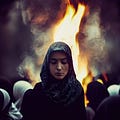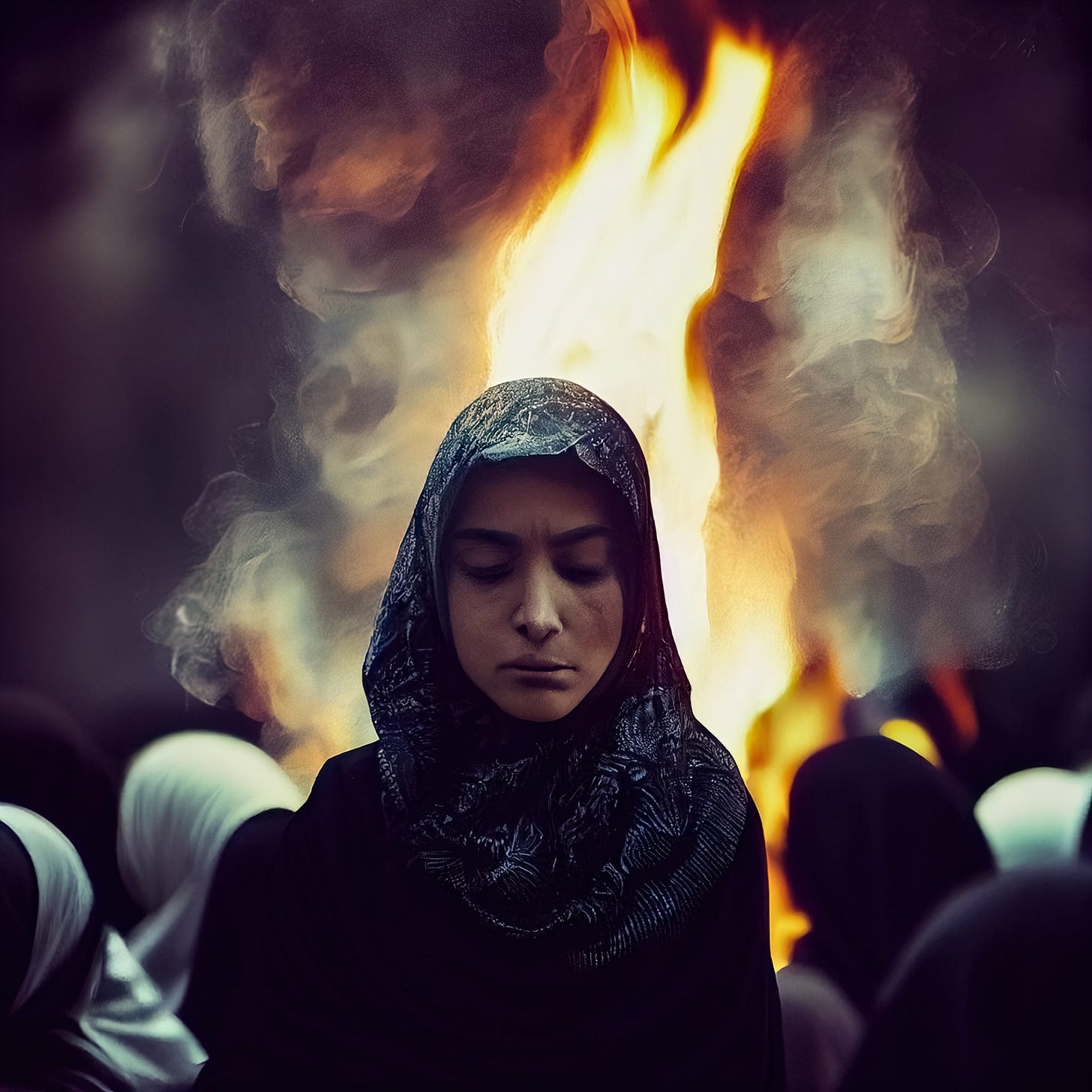Is the Middle East ready for democracy?
A letter exchange with the Turkish author Mustafa Akyol on Islam, politics, and whether liberalism is the future.
This is part 1 in a 6-part correspondence series between myself and the Turkish author and thinker Mustafa Akyol. I will be writing letters 1, 3, and 5, and Mustafa will be writing letters 2, 4, and 6 on his Substack.
Links will be added as the letters get published: letter 1, letter 2, letter 3, letter 4, letter 5, and letter 6. We’d love to hear from you, so let us know what you think in the comments.
Dear Mustafa,
I’m excited to start this back-and-forth with you. Let me begin by giving you and readers a sense where my thinking is at these days.
It’s a longstanding question: Is the Middle East ready for democracy? But it might seem like a silly question, especially now. After all, is the United States ready for democracy, one might reasonably ask. And many did. The question itself—applied to any country—is an odd one, because it makes democracy sound like some sort of prize. Are you ready to run a marathon? Are you ready to perform Beethoven’s Fifth to a live audience? Presumably not, because you haven’t done the work. Is democracy something you have to learn or practice for? This makes democracy into something weighty and difficult, turning it into something both mysterious and mystical, to be granted only to those who are deserving.
In my book The Problem of Democracy, I try to return the idea of democracy to its proper place and form, before we made it into something thick and imposing. I call this “democratic minimalism.” Democracy is not a “culture” or a set of value propositions. It is, much more simply, a set of procedural mechanisms for managing political competition, selecting leaders, and alternating power between parties and individuals. When democracy is in tension with liberalism—in the classical sense of individual freedoms, personal autonomy, gender equality, and minority rights—then I believe we need to err on the side of democracy. You can’t force people to be free. Or you can, but then that renders the idea of freedom somewhat meaningless.
This is why the talk of nurturing a “democratic culture” in religiously conservative (read: backward) societies has always made me nervous. It draws on a widespread strain in political science that democracy, to be done well, requires a sequential, multi-stage approach. Before democracy can take hold, other things must happen. People need to be ready—or be made ready. In the sequencing paradigm, the liberalization of old, traditional modes of thinking—reason over revelation, science over superstition, the individual over the collective—is a prerequisite, setting the foundation for everything that comes after. Hearts must be habituated to democratic ways, and this requires a change in mentality and attitude rather than a change in political behavior. It seems to me that this is asking a lot. Changing people’s beliefs and attitudes is quite a bit more difficult than changing their outward behavior.
I’m much more interested in means rather than ends, in procedures rather than outcomes, because outcomes are out of our control. Because we can’t control (or predict) outcomes, it would serve us all well to move towards a sort of outcome-agnosticism. Because in the end, reasonable (or unreasonable) people can—and maybe even should—disagree profoundly on the ends of politics.
I get the sense that the Turkish author
, one of our leading contemporary Muslim thinkers and the author of Reopening Muslim Minds, takes something close to the inverse approach, but I wouldn’t want to put words in his mouth. I’m curious how he would respond to the basic framing I’ve laid out above. Mustafa also happens to be a friend and sometimes sparring partner, but we haven’t sparred about this in a year and half, so I’m curious to what extent his views have changed, if at all. As I understand it, Mustafa takes the position that liberty should be the ultimate political objective and that democracy is good for Muslim-majority countries (or pretty much any country) insofar as it helps expand liberty and freedom of belief and conscience.What’s interesting is that in the last year and a half “post-liberalism” has continued gaining ground not in the Muslim world but in Western countries, the very places where the liberal idea was born. Illiberal far-right parties have made considerable strides in Italy, Sweden, and France. Well, the list goes on. It is Westerners who are losing faith in liberalism as the presumed endpoint of politics. So it seems like an odd time to double down on liberalism as the answer, when apparently liberals themselves (or those who used to be liberals) are losing faith.
This isn’t to say that liberalism isn’t better. I’m quite happy living in a liberal society and can’t (and wouldn’t want to) imagine it any other way. But, apparently, a lot of people disagree with me and are growing restless. They are trying to imagine another way, and that is their right—even if they’re wrong.
Mustafa: what say you?




The definitions of democracy and liberalism have been so misconstrued and distorted in the public mind that they no longer represent anything consistent between different groups of people. Equating the two terms as the same is a misnomer. This makes the question of whether people in any particular country are ready for democracy a bit meaningless in environments where ethics of integrity, truth and equality don’t materialize in governance.
Democracy is a system of governance that rules by majority vote. It is possible, then, for 49 percent of the voters and multiple minorities to be under-represented. The winning officials of an election, fair or not, then write and impose laws that can take away the rights of the people, regardless of how they voted. And once voted into positions of power, officials become difficult to remove. Voting is further weakened with untruthful reporting by the media and censorship because voters cannot make good choices without full information and knowledge.
Liberalism refers to individual freedom to make choices without harming or infringing upon the rights of others. But civil rights are often diminished by those in power, even in a democracy. In the US, many people still follow old habits of equating democracy and liberalism, but have lost faith in that type of governance as political, social and economic systems fail to provide good solutions to problems. All of our freedoms that we took for granted, such as the right to make our own health care decisions, the right on how to educate children, the right to work and travel, or the right to heterosexual gender of children are being threatened. Now Americans call those who promote the loss of those rights woke liberals.
See my Search for Truth News article called Sociocracy - Basic Concepts and Principles for more ideas in this thread.
This seems a little abstract to me. Here's a concrete example: when I was a kid 20% of Egyptians were Copts. Now, mostly because of persecution, the estimate is 10% and falling. What happens to minorities like the Copts in a demoacratic but illiberal regime?